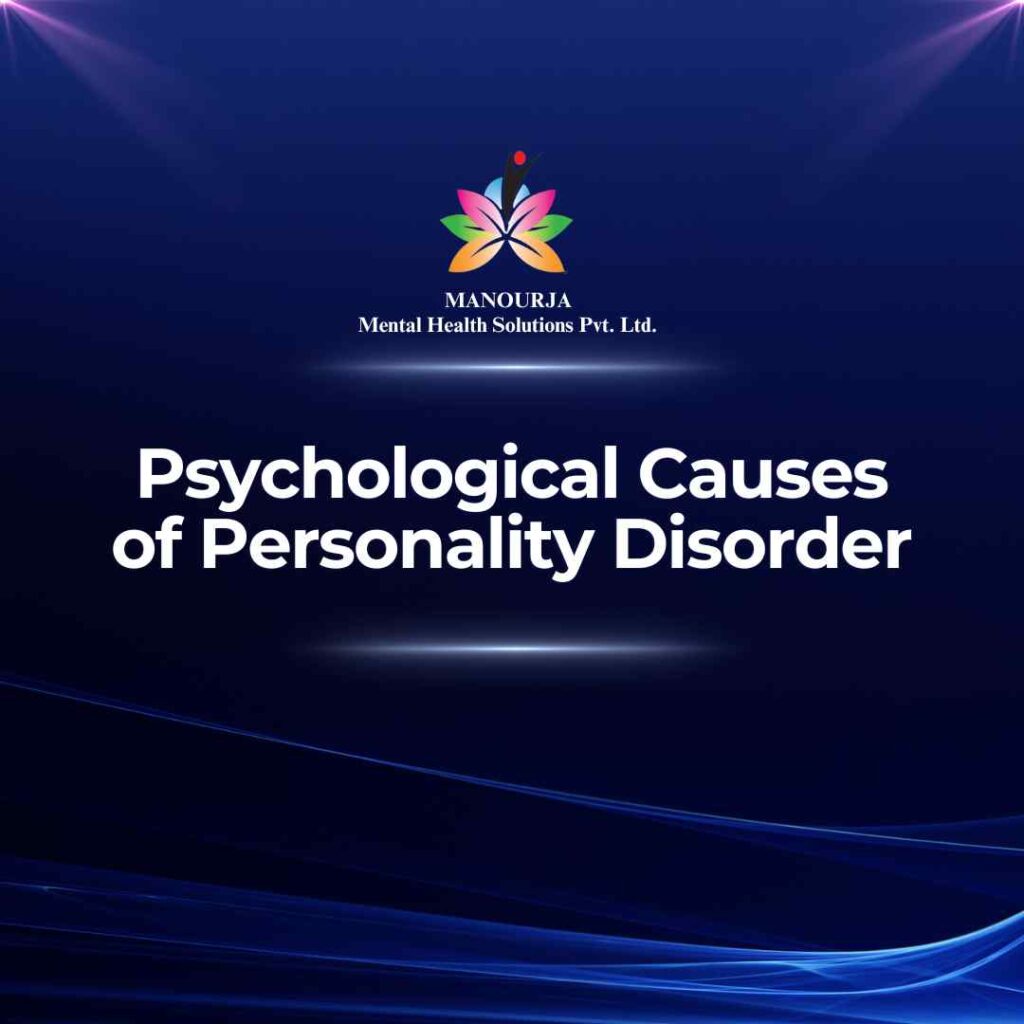Psychological Causes of Personality Disorder

Personality disorders are complex mental health conditions influenced by a combination of psychological factors alongside biological and environmental ones. Psychological causes often involve early life experiences, coping mechanisms, and learned behaviors. Understanding these factors can provide insights into the nature of personality disorders and guide effective interventions. Here’s an overview of key psychological causes:
Early Trauma and Abuse
Experiences of trauma and abuse during childhood are strongly linked to the development of certain personality disorders later in life:
- Emotional Abuse and Neglect: Can lead to feelings of insecurity, low self-worth, and difficulty forming healthy attachments, often seen in borderline and avoidant personality disorders.
- Physical or Sexual Abuse: These traumas are associated with disruptive and antagonistic behaviors, and can be a precursor to disorders like antisocial and borderline personality disorder.
Attachment Issues
The nature of attachment relationships formed in early childhood with primary caregivers significantly influences personality development:
- Insecure Attachment: Anxious or avoidant attachment styles can result from inconsistent or punitive caregiving. Such attachment issues are common in the backgrounds of those with borderline, avoidant, or dependent personality disorders.
- Disorganized Attachment: Often found in those with histories of severe abuse or neglect, disorganized attachment can contribute to confused or chaotic behaviors associated with certain personality disorders.
Learned Behaviors
Individuals often learn and internalize behaviors from their environment:
- Modeling: Observing and mimicking the behaviors of caregivers or significant others who may display dysfunctional behaviors themselves can lead to the development of similar patterns.
- Reinforcement: Certain behaviors may be reinforced, either positively or negatively, during development. For instance, manipulative behavior (seen in histrionic or narcissistic personality disorders) may be a learned strategy to gain attention or affection.
Cognitive Distortions
The way an individual perceives and interprets the world can lead to persistent patterns of distorted thinking, affecting their personality:
- Black-and-White Thinking: Seen prominently in borderline personality disorder, where individuals may see things in extremes without middle ground.
- Overgeneralization: Common in many personality disorders, this is the tendency to apply a single incident to all future occurrences.
Emotional Dysregulation
The inability to regulate emotions effectively is a key psychological factor in many personality disorders:
- Difficulty Managing Anger: Anger management issues are particularly evident in antisocial and borderline personality disorders.
- Heightened Emotional Sensitivity: Individuals may experience emotions more intensely and for a longer duration than typically expected, leading to difficulty in emotional self-regulation.
Maladaptive Coping Mechanisms
In response to stress, individuals may develop maladaptive coping mechanisms that can perpetuate personality disorder symptoms:
- Avoidance: Avoiding stressful situations which can exacerbate feelings of anxiety and fear, common in avoidant and dependent personality disorders.
- Substance Use: Often used as a coping mechanism to manage overwhelming emotions or social insecurities.
These psychological causes interact with each other and with biological and environmental factors in complex ways. Understanding these interactions is crucial for the effective treatment and management of personality disorders, typically involving psychotherapy aimed at addressing these underlying psychological issues.
At MANOURJA, we believe in the transformative power of counseling. Our experienced therapists offer a safe and supportive space where you can explore your thoughts, emotions, and challenges. Through personalized counselling sessions, we’ll work together to develop coping strategies, build resilience, and achieve lasting positive change. Discover the path to a healthier, happier you with MANOURJA counselling services.
MANOURJA Rehabilitation Services
At MANOURJA, we’re dedicated to helping you in rebuild your life, after difficult times. Our rehabilitation services focus on understanding what you need to move forward, whether you’re recovering from addiction, trauma, or any psychological – social challenges. We create personalized plans, that are all about helping you, regain your strength and find hope again. With a caring team by your side, you’ll have the support to make real progress and take steps toward a brighter, healthier future
